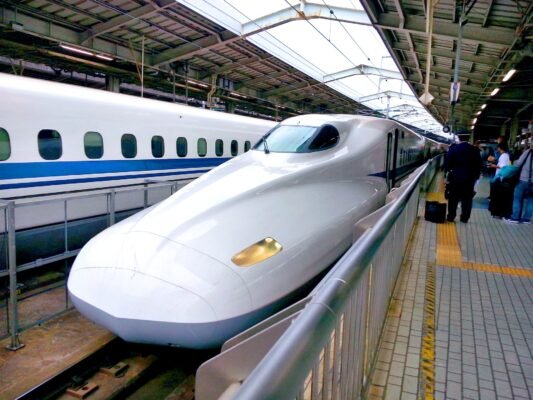World Nuclear Powers
Introduction to the Nuclear States
The Nuclear States which the United Nations have recognized as world atomic powers, that have signed the treaty for peaceful usage of Nuclear Energy, NPT (Nuclear Non-Proliferation Treaty) are five, including the United States, Russia, the United Kingdom, France, and China. Apart from the NPT countries, some other countries have also been recognized as Nuclear States, including India, Pakistan, North Korea, and Israel. In this piece of writing, our focus will be on Nuclear Power in Developing countries, especially India, Pakistan rivalry, and the title of Nuclear States for the two neighboring nations.
The world’s 9 Nations that have been recognized as atomic powers make an image among the world’s best countries. Being a nuclear power means that the government is powerful from all internal and external perspectives.
The nuclear power title explains that a country is better than Non- Nuclear states. Therefore, keeping in view to be considered the best nation, it is mandatory to know the definition of the best nation.
Historically it is proven that powerful nations command over the weakly organized countries.
How a Nation Become Powerful?
A nation with substantial military power, a country with a high level of justice, a nation with a high literacy rate, a nation with good GDP growth, and above all, a nation whose masses are happy with their living standards. The purpose of mentioning these traits of a powerful nation is that a nuclear state should follow this route before attaching the title of atomic power to their names.
India and Pakistan Atomic Bomb History
India and Pakistan are the two significant sub-continent countries, and their importance in the region is more due to the rivalry between the two nuclear states.

It was May 1998 when both the countries got the title of Atomic Powers, which was purely based on rivalry since 1947. Both the countries faced world criticism, diplomatic and economic crises. Pakistan responded well in time after the successful nuclear test from India. You cannot defend it only by saying it as a response; instead, it was already ready to detonate.
The Reasons to Become an Atomic Power
No doubt, the India-Pakistan rivalry is the basic and the most substantial reason for the two countries to go ahead with the most dangerous power acquisition title. The two nations sacrifice their peace for arrogance, absolutely for superiority. Both the countries suffer a lot due to their Nuclear State title and couldn’t benefit from it as the leading nations do.
India and Pakistan had already confronted each other at various points. Both countries were already consuming valuable resources on the world’s highest and coldest Siachen Glacier, where India, Pakistan borders meet at Line of Control. Siachen Glacier, where the death toll is 97% due to challenging weather and 3% other reasons.
Why Nations Sacrifice Their Peace for Arrogance?
It was not the Governments of Pakistan and India willing to sacrifice for the nuclear detonation test but the two poor and arrogant nations to surpass the other. The masses from the two countries had nothing to give their governments except the slogans. The craze for the nuclear title courage them to raise their voice and announce that they will eat grass but will possess atomic power.
It is pertinent to highlight here that India and Pakistan both the nations had no facility like the world-leading countries as mentioned in the introduction. So, till today, after 23 years of Nuclear title, they are suffering from basic needs.
Can A Country Grow Without Atomic Power?
Various countries are leading the world without the title of Nuclear State. The peaceful nations of these countries are using their energies for real progress that is beneficial for humanity. The world’s major countries with the latest technology are Japan, Germany, Switzerland, Australia, Belgium, and many more. These countries are leading the world and getting the reward in the massive number of economic resources from the whole world and are symbols of success.

From the perspective of India, Pakistan rivalry, we can say that the purpose of nuclear power is to turn the enemy country into ashes which seems equally impossible. The neighboring nations may never attack with this so-called asset because of their geographical locations. Still, they will continue to spend their major part of the economy to save the nuclear power state. The reason for their limitations is that if a country drops a single atomic bomb to a rival state, its safety is at risk, as has been witnessed in Japan since the drop of the atomic bomb.
Can India and Pakistan Afford Atomic Bomb?
India and Pakistan are the two world nations with Nuclear power, which were suffering before Nuclear Power testing and still suffering after 23 years of Nuclear Power possession.
Both the countries are rich with natural resources and can progress if they include the definition and some of the traits of the best nation, which are discussed in the introduction.
It shouldn’t have been a matter of pride for nuclear detonation but a reasonable satisfaction to consume these resources for two nations’ progress before attaining atomic title.

The most important thing for a country is to consider the living status of the masses, which is unfortunately below average for India and Pakistan since they came into existence.
While India cannot provide toilets to its nation, Pakistan is suffering from providing hygienic water to its population. With such low living standards, how these two arrogant nations can raise their voice over the world’s leading countries. They think of themselves as resourceful, and they call for help from the whole world in any crisis.
It is not a matter of being a nuclear power, but it should be justice, education, economic growth, and the essential happiness of the masses.
